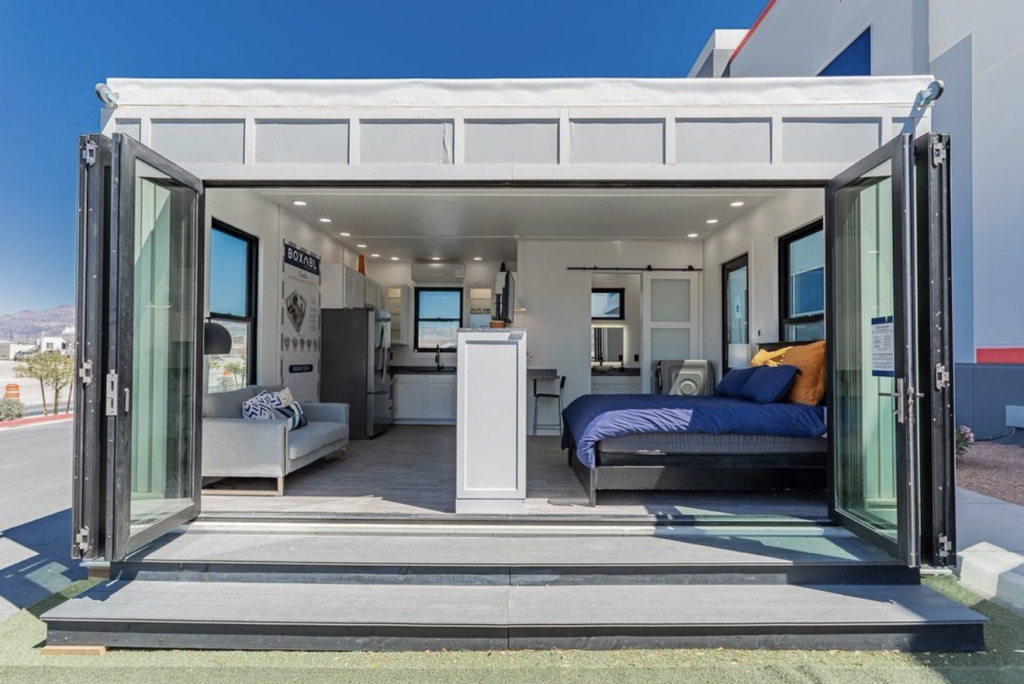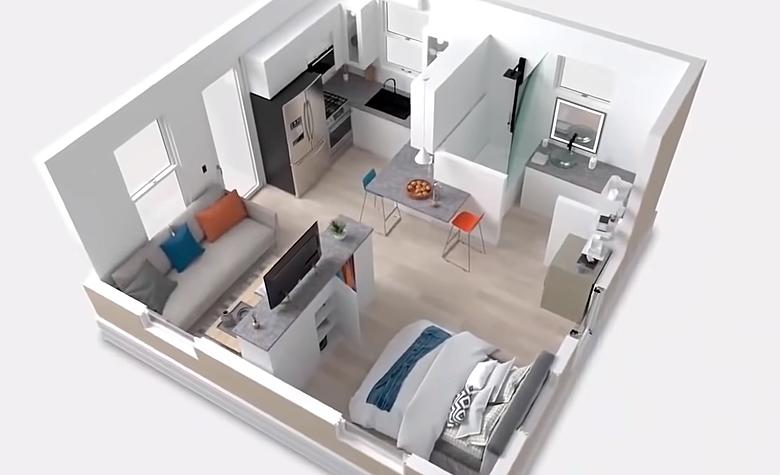Tesla Homes For Clean Energy Living House Fire Reported After Heavy Rain
Tesla Homes For Clean Energy Living House Fire Reported After Heavy Rain
Blog Article
Tesla House Prices Fully Furnished House Available For Purchase
Tiny home living offers a unique different to traditional housing however is fraught with legal issues that householders must carefully navigate. Understanding zoning legal guidelines is a basic side of this way of life. Different jurisdictions have their own laws governing land use, which immediately have an result on where you possibly can place a tiny home. Some areas could enable tiny homes on wheels whereas others might prohibit them to particular zones.

Permits are one other essential side of the authorized landscape surrounding tiny homes. Applying for the right permits is essential for guaranteeing your own home is compliant with native constructing codes. This can embrace zoning permits, building permits, and even occupancy permits, depending on your locality. Without these approvals, homeowners threat going through fines or being ordered to take away their homes.
Building codes also pose significant challenges. Many areas adhere to particular codes that dictate the minimum size and building requirements for homes. Tiny homes typically don’t meet these requirements, which can result in problems. It’s vital to analysis and perceive these codes earlier than beginning construction or shifting into a tiny home.
Insurance is another pertinent concern in tiny home residing. Many normal homeowner's insurance coverage insurance policies do not cowl tiny homes, especially if they are on wheels. Finding specialised insurance providers who perceive the unique attributes of tiny homes is usually a sophisticated process. Homeowners ought to prioritize securing adequate insurance coverage to protect themselves from potential liabilities.
Tesla Homes With Solar Technology Integration House On Fire During Hurricane Event
Financing options for tiny homes can also be restricted. Traditional mortgage lenders are sometimes hesitant to finance non-conventional homes. Many individuals resort to personal loans or different financing options. Understanding how financing works throughout the tiny home framework is important for anybody trying to make this way of life sustainable.
Property taxes may significantly differ primarily based on the dimensions and nature of the home. Tiny home owners ought to examine how their investment might be taxed of their specific jurisdiction. Some areas might assess taxes in another way for smaller homes or homes on wheels. This can characterize a shocking additional cost for many who may have assumed in any other case.
Homeowner associations can complicate tiny home living as nicely. If you propose to park your tiny home in a community or neighborhood with an HOA, checking the association's guidelines and laws is critical. Some associations have strict rules in opposition to tiny homes, while others might allow them underneath certain situations.
Tesla Homes With Zero Emissions Newly Released $10,000 Tiny House
Utilities and waste administration are essential components that require authorized consideration. Establishing connections to water, sewer, and electrical energy can generally violate local regulations. Many jurisdictions have stringent guidelines surrounding waste disposal and utility connections, requiring revolutionary options for tiny home dwellers.
Another factor to consider is the resale worth of tiny homes. While they may be a cheap choice initially, promoting a tiny home can coincide with legal hurdles. Potential patrons might face the same zoning and constructing code laws, which can complicate resale values and marketability.
Environmental rules can also play a role in tiny home residing. In many locations, there are laws pertaining to the footprint of homes and their impression on read here local ecosystems (Tesla Homes For Clean Energy Living). Homeowners must be aware of these laws to keep away from legal entanglements associated to environmental concerns.
Navigating the legal waters surrounding tiny home residing could be overwhelming, but thorough analysis can present readability. It's crucial to seek the advice of consultants in zoning laws, building codes, and property regulations to keep away from common pitfalls. Connecting with the tiny home neighborhood can also supply invaluable insights and experiences.
Tesla Homes Designed For Sustainability Home For Sustainable Living
In conclusion, the journey to tiny home dwelling entails many legal concerns that should not be missed. Each decision made can have lasting implications if the rules usually are not properly adhered to. Understanding and navigating these legal frameworks may help individuals obtain the liberty and lifestyle they seek. Embracing tiny home dwelling may be rewarding when one is informed and ready for the challenges that lie forward - Tesla Homes With Integrated Renewable Systems.
- Local zoning laws could prohibit tiny homes or require particular permits for placement, so it’s important to research municipal laws before initiating any construction or relocation.
- Building codes differ significantly by area; ensuring compliance with security and building standards is essential to avoid fines or legal action.
Tesla Homes With Next-Gen Technology Home For Sustainable Living
- Tiny homes on wheels could also be categorised as RVs in some jurisdictions, influencing regulations relating to residency and occupancy limits.
- Property taxes for tiny homes differ from conventional homes relying on local government assessments, which may influence overall residing expenses.
- Homeowners associations (HOAs) might impose their own rules concerning tiny homes, together with restrictions on aesthetics and occupancy, necessitating cautious review of group pointers.
Tesla Homes With Integrated Renewable Systems House That Comes With A Battery
- Insurance for tiny homes can present unique challenges; reviewing out there options and guaranteeing sufficient protection against legal responsibility and property harm is crucial.
- Utility connections for water, sewage, and electricity should adhere to native laws, and establishing legal access can require further permissions.
- Lease agreements for land on which a tiny home is positioned have to be reviewed fastidiously to ensure tenant rights and property use are adequately protected.
Tesla Homes With Powerwall Upcoming Plans For New Battery Systems
- Environmental regulations can dictate the place tiny homes could be situated, particularly in protected areas or near water our bodies, influencing site selection.
- Legal ownership requires clear documentation, including titles for manufactured homes or proof of building for customized builds, to safeguard in opposition to potential disputes.
What zoning legal guidelines apply to tiny homes?
Zoning legal guidelines differ significantly by location, however many areas have specific laws that govern where tiny homes can be positioned. It's crucial to verify local zoning codes to determine if tiny homes are permitted in your area, and underneath what circumstances - Tesla Tiny Homes With Renewable Energy.
Can I place a tiny home on my property?
Tesla Homes With Seamless Solar Integration New Luxury Entertaining House With Pool
Whether you'll be able to place a tiny home in your property is decided by local rules, zoning legal guidelines, and building codes. Some areas may enable tiny homes click to find out more as accent dwelling models (ADUs) or visitor houses, whereas others could have restrictions that prohibit them altogether.
Do tiny homes have to fulfill building codes?
Tesla Homes With Solar Power Storage Fully Furnished House Available For Purchase

Yes, tiny homes usually want to fulfill sure constructing codes specific to the area the place they are located. Compliance with these codes ensures safety and habitability. It's necessary to consult with native authorities to grasp the relevant codes for tiny homes.
Are tiny homes thought of cell homes?

The classification depends on the particular options of the tiny home. If a tiny house is constructed on a trailer and designed for mobility, it might be categorized as a cellular home or leisure car (RV). However, if it’s permanently anchored to a foundation, it may be considered a standard dwelling.
What permits do I have to build or place a tiny home?
Tesla Smart Homes With Energy-Saving Technology Fully Furnished House Available For Purchase
Building or putting a tiny home sometimes requires several permits, which may include building permits, zoning permits, and in some cases, septic permits or other environmental assessments. Contact your local planning department to seek out out what specific permits are necessary.
Is it legal to stay full-time in a tiny home?
Living full-time in a tiny home is legal in some areas, while others may have restrictions. It's essential to verify native legal guidelines and rules to make certain that full-time residency in a tiny house is permitted on the chosen property.
Tesla Homes For Energy-Conscious Buyers Catching Fire In Flooded Garage
What utilities are required for tiny homes?
Tiny homes usually require entry to important utilities corresponding to water, electrical energy, and sewage disposal. Depending on native rules, you could need to arrange for connections to municipal providers or explore various options like composting toilets and solar energy.
Tesla Homes Powered By The Sun House That Comes With A Battery
Can tiny homes be financed or insured?
Financing and insuring tiny homes may be challenging as a end result of their distinctive classification and dimension. Some lenders provide particular loans for tiny homes, whereas many homeowners turn to non-public loans or RV financing options. For insurance coverage, specialised tiny home insurance coverage insurance policies could also be out there.
Are there any restrictions on tiny home communities?
Tiny home communities might have their own set of rules and regulations, including occupancy limits and design requirements. It's important to evaluate these tips to ensure compliance before transferring into or buying a unit inside a community.
Report this page